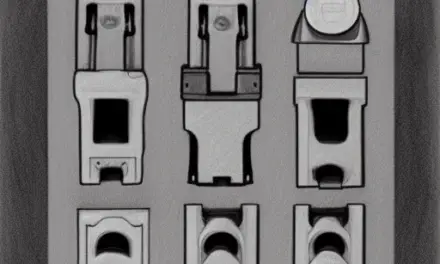There are many different ways to pursue a career as a professional organizer. Some designers prefer to work within an established organization while others choose to start their own business. Whichever you choose, this career choice will require some educational training and some research. In this article, we’ll take a look at the various steps you’ll need to take to get started.
Starting a professional organizer business
If you love to organize, starting a professional organizer business may be a good option for you. Many professional organizers target senior citizens. This type of business requires organizational skills and problem-solving skills. Luckily, this type of business requires only a small investment and minimal overhead. You can even set your own rates and set your own hours.
When setting up your professional organizer business, you’ll need to consider what business structure is best for you. Choosing a corporation will minimize your personal liability and make it easier for you to raise money from outside sources. However, if you plan to expand your business in the future, you’ll want to consider setting up an S corporation or an LLC. Both have advantages and disadvantages, but you should choose based on the type of business you want to run.
Your business plan should describe the services and products you plan to offer. You should also include financial projections and expenses. The plan will give you a clear roadmap to follow throughout your business life. Your plan will also help you apply for startup funding. A good professional organizer business plan will help you succeed in the industry. Just like any other business, starting a business is never an easy process. However, with the right guidance and preparation, it can lead to great results.
To become a professional organizer, you must have a strong organizational sense, a can-do attitude, and the desire to help people. You can start a professional organizer business as a home-based business or a traditional company. This type of business is becoming increasingly popular in this economy, and if you want to help people improve their lives, this may be the right career choice for you.
Specializations in professional organizer business
There are a number of specializations in the professional organizer business. Home organizers, for example, specialize in helping clients make the most of their space by recommending a system that they can use to organize their homes. These professionals must be flexible and patient, as well as good communicators. Others specialize in the organization of office spaces, tackling issues such as file systems and workspaces. Some organizers also specialize in digitizing old documents.
A professional organizer should have excellent problem-solving skills, as they spend a lot of time addressing the needs of clients. They should also possess empathy, which is a crucial skill for connecting with clients. Empathy helps them understand what the client wants and how they may be resistant. If a client is resistant to receiving professional services, they can refer them to another organizer who can handle the job.
A good professional organizer will also be able to help their clients manage the process of offloading. This means that they must be sensitive and work closely with their clients. They will also be able to offer solutions that make the workplace more pleasant to work in. They should be familiar with a variety of organizational systems and storage solutions, and be able to implement them in a client’s home. However, clients should remember that the services provided by a professional organizer must be tailored to the client’s lifestyle.
Besides being well-trained, a professional organizer must have experience in consumer service and management. The business owner should also be familiar with the legal aspects of running a small business. In addition, he or she must know the different aspects of business management, marketing, and business development. Besides, he or she must attend conferences related to the industry to network with other professional organizers.
Cost of starting a professional organizer business
Starting a professional organizing business can be costly. You will have start-up expenses as well as capital expenses. Whether you operate from home or use an office space, you will need to pay for insurance, web hosting and website design. You may also need to invest in education, certifications and training to help you run your business. You may choose to franchise your business, which will come with a fee.
The cost of starting a professional organizing business will vary depending on the type of service you offer. If you offer only one-on-one organizing services, you can earn about $78,000 per year. At this rate, you can earn a profit of $70,000, assuming a 90 percent profit margin. If you are looking to expand your business, you can expand to three or four organizing jobs a week. You can then earn up to $260,000 per year, or even more.
Your professional organizing business will need business licenses, a business bank account, and tax ID numbers. An employer identification number is a nine-digit number that is issued by the IRS. It will ensure that your business pays its fair share of taxes. You may also want to consider public speaking to get a name for your business.
If you would like to specialize in a certain area, you can charge a higher rate. Some organizers also offer additional services, such as scanning in photos, moving furniture, and professional cleaning. However, this can be a difficult task and may require you to spend more on your services. Make sure to consider how much service you need before you decide on hiring a professional organizer.
Educational requirements for starting a professional organizer business
If you’re interested in starting a professional organizing business, you’ll need to obtain some business licenses and insurance. You’ll also need to register your business with the government and have your own business bank account. Having a business license is important, as it will help protect you from liability and also provide a way to save money on taxes. It also gives you credibility with potential clients, since they’ll feel safer knowing that you’re an actual business rather than an individual. It is also important to have professional liability and general liability insurance.
There are also certification requirements, including a school diploma and 1,500 hours of paid work in the past five years. In addition, professional organizers must adhere to a strict code of ethics. In order to become certified, professional organizers must undergo an examination. The exam consists of 125 multiple-choice questions. After completing this exam, professional organizers must also join the National Association of Professional Organizers (NAPO), which costs $275. Becoming a member of NAPO can help your business prospects in the future.
While professional organizers are not required to have a college degree, many earn their certifications by taking courses in business and English. Some also earn degrees in related fields, such as psychology or mental health. Most professional organizers are self-employed. However, those who are interested in working with chronically disorganized individuals should consider getting a degree in a mental health field.
In addition to these educational requirements, a professional organizer needs to have training in a specific specialty. This means knowing how to install different organizational systems and being familiar with the various organizational products available on the market. Some specialties include children, senior citizens, and people with disabilities. Knowing your strengths and performance style will help you determine which specialty you’ll be best suited for.
Personality traits of professional organizers
Professional organizers are known to have great organizational skills. Their ability to organize workspaces helps them stay focused and productive. They are able to meet deadlines and goals more effectively. Whether you’re trying to keep your home or office organized, here are a few personality traits to look for in your organizing professional.
People with organized personalities tend to follow routines and have predictable habits. They may set reminders for upcoming deadlines and prioritize their tasks accordingly. This helps them finish tasks faster and makes them reliable colleagues. They are also able to avoid letting things pile up. Moreover, organized people know how to prioritize tasks and avoid procrastination.
Professional organizers should have good communication skills and be open-minded. They are able to build trust with their clients and establish a positive relationship with their clients. They should also be able to establish an understanding with their clients and explain to them how their services will benefit them. They should choose a specific area of expertise to focus on and explain to clients how they will benefit from their services.
Organizers are socially active people with a particular appreciation for the community. They are also good leaders and excel in group coordination. They enjoy taking on a lot of responsibility and overseeing details. Organizers also value the implicit fabric of culture and tradition as stabilizing forces in society.
They know when to delegate and when to do it themselves. Their loyal workers are essential to the success of their operations. They also naturally maintain accountability to their workers. However, they should not allow their organizing talents to cause disharmony.













